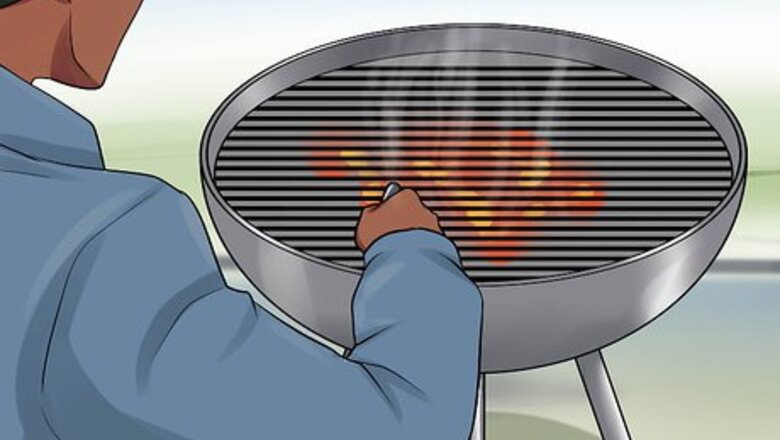
views
Identifying Hazards in Common Backyard Items
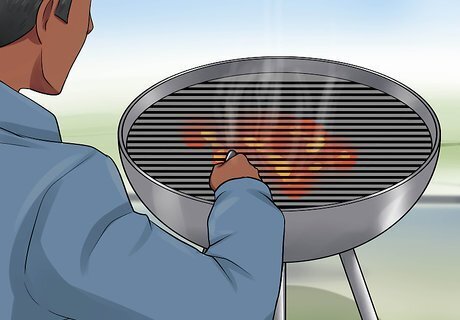
Make sure your grill is not a fire hazard. Everyone loves to grill in the backyard. However, grills are hazards because they are controlled fires. This means you should place your grill in a location that is a safe distance from combustible or flammable items. Place it 10 feet from anything that can catch fire. Make sure your grill is far enough away from your house. Your grill poses a fire threat to your home, so you want to set your grill away from your house. Make certain the grill is at least 10 feet away from any plants or trees. If the grill is too close to the plants, they may catch fire. Before you discard any coals, make certain the fire is totally out by dumping a bucket of water on the coals.
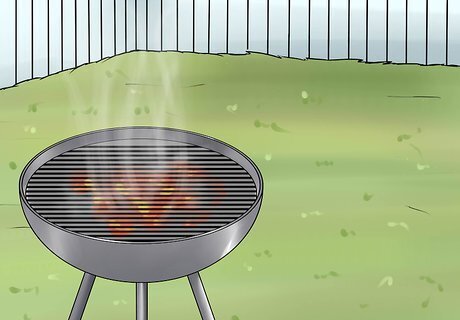
Place your grill in a safe location. Make sure the grill is stable when you set it up. The grill should not be uneven or wobbly, which may occur if you place it on uneven ground or don’t remove debris beneath it. If the grill is uneven, it may tip over, which can cause a fire or cause injury to those around it. Make sure that the grill is not near the edge of a deck. If it’s too close to the edge, it could fall off and cause a fire or injury. You should place the grill in a location where children will not be near it without adult supervision. Children should never play near a grill, and they should not run around in an area near a grill. Watch any pets near the grill. Ensure that your dog or cat won’t accidentally hop on top of a hot grill surface and burn themselves. You should also keep rambunctious dogs away from the grill, or place it in a location where the dog won’t knock it over.
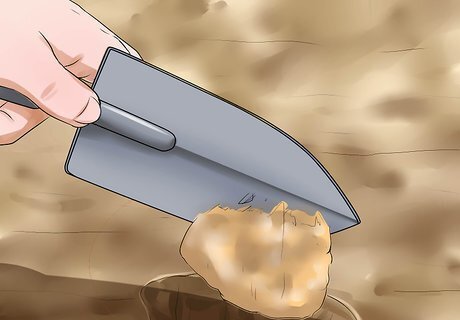
Fill in any holes in the yard. Small holes in your yard can cause an array of problems. Small holes can cause hazards for children or pets who run around the yard. They may not see the hole and then step in the hole and fall, twist their ankle, or even break a leg. Try to fill in small and large holes with dirt. Small holes can also collect water. This provides a perfect environment for mosquitoes. Holes filled with water may also attract vermin, which can spread disease through stagnant water. If your pet or child plays in this water, they may spread the disease in the water.
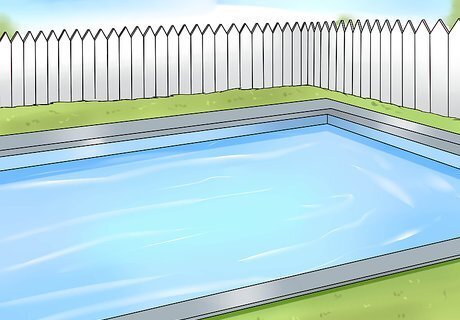
Protect your pool from drowning risks. Nothing can quite match the relief of the pool on a hot day. However, backyard pools are a common cause of drowning. Your pool should be enclosed within a fence at least 5 feet high. This helps prevent children and neighborhood pets from getting into the pool when no one is there. Don’t leave any patio furniture around the pool that can be used to climb into the pool. Make sure that the pool area is lit at night to prevent someone from accidentally falling into the pool in the dark.
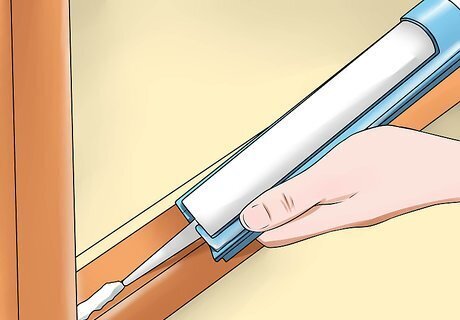
Fix any weathering on your deck. You may have a wooden deck that you love to sit on, but it may be a potential hazard. If you have not waterproofed the wooden slats of your deck, they could begin rotting after a few years. If they start rotting, they pose potential risk for breaking or caving in, which can lead to injury. Warped wood may also pose a tripping risk. Look for any splits or cracks in the wooden slats. You should also check the edge of the deck, where it connects to the house. This is probably where you will see damage first. You should waterproof your deck every two or three years.
Reducing Plant and Lawn-Related Risks
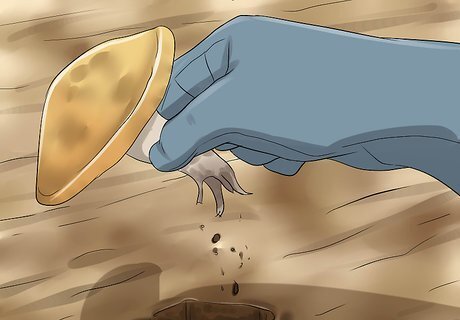
Identify poisonous plants. Many common backyard plants are poisonous or may cause allergic reactions. These types of plants may be particularly problematic if you have small children in your home. You should research the plants in your yard you do not recognize and find out which ones are poisonous or can cause rashes. Teach your children not to eat berries or plants they find in the yard. Some common plants that are poisonous include aconite, Angel’s trumpet, almond tree seeds, apple seeds, apricot seeds, autumn crocus, azaleas, black henbane, chinese lanterns, many nightshades, delphiniums, English laurel, mistletoe, jimson weed, and many others. #*Check any plants before you plant them. Determine if they are safe or poisonous.
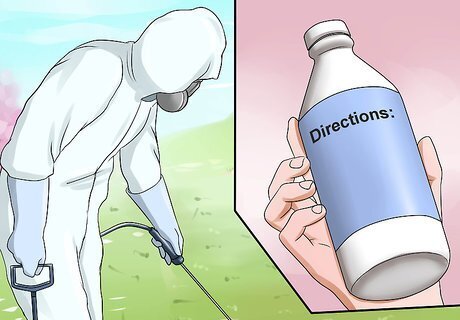
Use outdoor chemicals properly. You may use a variety of chemicals in your backyard. If you do, make sure that any pesticides, herbicides, fertilizers, pest sprays, or other chemicals are properly stored. Keep them in places where children and pets cannot get into them. Don’t leave them open so they may spill onto the ground, which can be harmful to pets and humans. Make sure to use all yard chemicals properly. Read all directions and instructions regarding the use of these chemicals before using them. Carefully follow them so you can keep everyone safe.
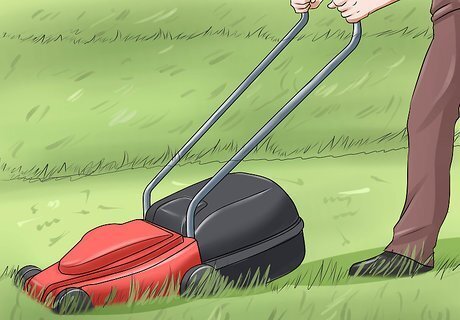
Maintain your lawn and trees. Doing regular upkeep on your lawn and the trees around your house can help reduce hazards in your yard. Mow your grass regularly to prevent it from getting too high. High grass provides hiding places for snakes and allows vermin, such as moles and mice, free reign. Keep an eye on any trees in your backyard. Prune regularly and remove any dead branches. You don’t want your kids playing under trees with falling, dead branches.
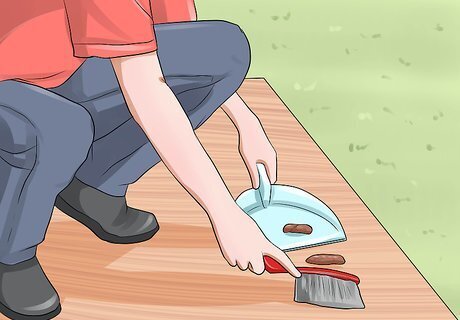
Remove pet waste. Another aspect of home maintenance if you have pets is to remove pet waste from the ground. Make the rounds around your yard from time to time to dispose of any dog or cat poop lying around. Animal feces can contain infectious organisms, which can spread to humans. If you have backyard chickens or other animals, make certain their coops or other housing is cleaned regularly.
Controlling Insects in Your Yard
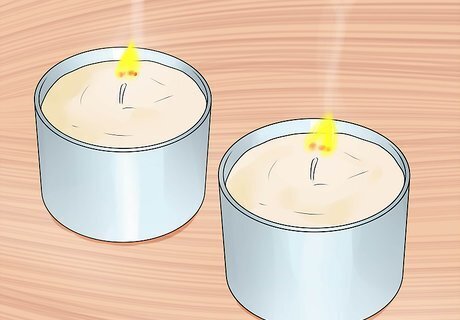
Control the mosquito population. Mosquitos are one of the most annoying backyard pests. Mosquitos and other flying bugs can ruin a nice night out in the backyard. To help control the amount of mosquitos and other bugs, try burning citronella candles. Burning citronella candles, especially at night, can help reduce the number of flying insects around. Mint can also repel flying insects. Keep some mint plants in the garden and around the deck. Neem oil is also effective at getting rid of mosquitos.
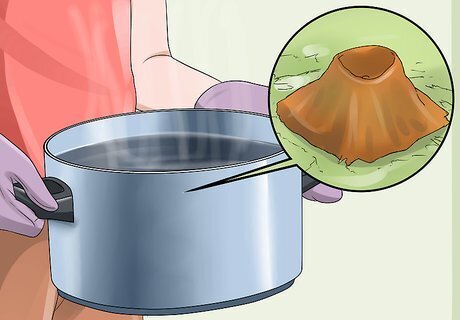
Eliminate ants around your yard. Ants are another common backyard pest. Instead of using chemicals and pest killers to get rid of the ants, try natural methods to get rid of them. This poses less of a hazard for your backyard. Pour boiling water over ant hills to kill ants. Try covering the ant hill with a bag of diatomaceous earth. This can help control ants. Ants do not like garlic or cucumbers. Keep some garlic and cucumber slices around any known ant points of entry, such as between the cracks on the deck or at the feet of the patio table
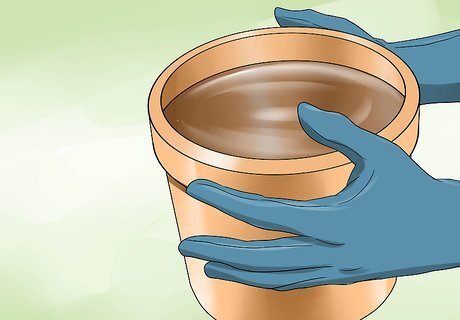
Keep containers free from standing water. Mosquitos are a common backyard pest. To help prevent them from raising in your backyard, keep water from collecting in containers. This includes bird baths, empty flower pots, or any other container that may collect rain water. Change the water in bird baths at least once a week. Move containers out of the rain or turn them upside down so they cannot collect any water when it rains.




















Comments
0 comment